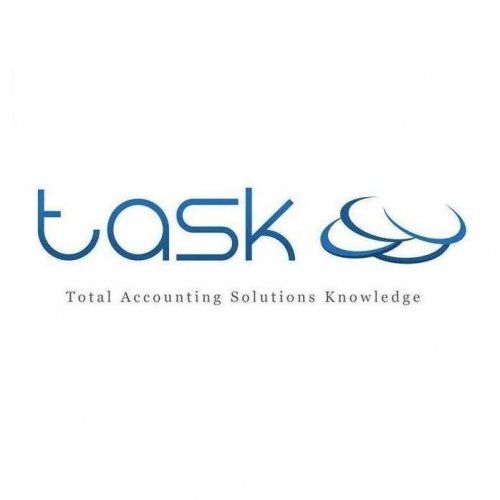Best Business Lawyers in Singapore
Share your needs with us, get contacted by law firms.
Free. Takes 2 min.
Or refine your search by selecting a city:
List of the best lawyers in Singapore
Singapore Business Legal Articles
Browse our 4 legal articles about Business in Singapore written by expert lawyers.
- Mediation: Parties get to meet early on
- I remember a case I did a few years back. The business dispute at the High Court was extremely litigious. Application after application, allegation after allegation. And this was between business partners who has started the business together and built it from scratch into a multi-million-dollar, international business spanning many... Read more →
- Mediation: Keeping disputes out of court
- To all business owners, managers, and executives. You start your business. You have a dispute. One thing that you will definitely regret in such a case is not having a mandatory Mediation Clause in your agreements.Singapore is at the forefront of the movement to encourage mediation instead of more abrasive... Read more →
- The Liability of Directors for Company Insolvencies
- Directors of an insolvent company owe a fiduciary duty to the general body of creditors of the company. Directors may be found in breach of such duties if they continue the business of their company without due regard for the collective interest of the creditors.There is, however, no specific rule... Read more →
About Business Law in Singapore
Singapore is renowned for its robust and efficient legal system, which plays a pivotal role in its position as a global business hub. Business law in Singapore covers a wide range of areas, including corporate governance, commercial transactions, compliance, mergers and acquisitions, intellectual property rights, and dispute resolution. The country offers a conducive environment for business with a straightforward legal framework, emphasizing transparency and ease of operations, making it highly attractive to both local and international businesses.
Why You May Need a Lawyer
Engaging a lawyer can be crucial in various business scenarios. Some common situations include establishing a new company, negotiating joint ventures, drafting and reviewing contracts, handling disputes or litigation, navigating compliance requirements, and protecting intellectual property. Lawyers ensure your business operations align with local and international laws, helping to minimize legal risks and liabilities.
Local Laws Overview
Singapore's legal framework for business is structured to facilitate and safeguard entrepreneurial activities. Some key aspects include:
- Companies Act: Governs the formation and management of companies, shareholder rights, and corporate governance.
- Contract Law: Encompasses agreements between entities, ensuring that terms are enforceable and fair.
- Employment Law: Regulates employer-employee relationships, addressing issues such as wages, working conditions, and non-discrimination.
- Intellectual Property: Strong IP laws that provide protection for patents, trademarks, copyrights, and trade secrets.
- Taxation Law: Ensures compliance with taxes such as corporate income tax and GST, vital for financial planning.
Frequently Asked Questions
What are the steps to incorporate a business in Singapore?
To incorporate a business, you'll need to choose a business structure, obtain necessary licenses, register your company with the Accounting and Corporate Regulatory Authority (ACRA), and meet all compliance requirements.
What is the legal age to run a business in Singapore?
The legal age to run a business in Singapore is at least 18 years. Additionally, directors of a company must not be disqualified under the Companies Act.
Do I need a local director for my business?
Yes, all companies in Singapore are required to have at least one director who is ordinarily resident in Singapore, which can be a citizen, permanent resident, or a person with an employment pass.
Are foreign companies allowed to be 100% foreign-owned?
Yes, Singapore permits 100% foreign ownership for businesses, making it attractive for foreign investments.
How is business income taxed in Singapore?
Business income is taxed at a flat corporate tax rate, which is competitive internationally. Singapore also offers various tax incentives to businesses.
What is the procedure for closing a business?
The winding-up process involves submitting an application through ACRA, settling all outstanding debts, and properly dispersing remaining assets, adhering to the Companies Act stipulations.
Is it mandatory to have a company secretary?
Yes, Singapore companies must appoint a qualified company secretary within six months of incorporation, who ensures compliance with statutory obligations.
How do I protect my brand’s intellectual property?
You can protect your intellectual property by registering trademarks, patents, and designs through Singapore's Intellectual Property Office. This ensures legal protection against infringements.
What compliance requirements must businesses meet?
Businesses must regularly file financial statements, hold annual general meetings, and fulfill tax obligations, among other regulations stipulated by law.
Can business disputes be resolved outside of court?
Yes, many business disputes in Singapore are resolved through alternative dispute resolution methods like mediation and arbitration, which are cost-effective and confidential.
Additional Resources
For further support, consider reaching out to these resources:
- Accounting and Corporate Regulatory Authority (ACRA): Provides comprehensive guidance on business registration and compliance requirements.
- Enterprise Singapore: Offers support to businesses looking to grow domestically and internationally.
- Intellectual Property Office of Singapore (IPOS): Key resource for information and assistance on protecting intellectual property.
- Law Society of Singapore: Can help locate a lawyer or law firm specializing in business law.
Next Steps
If you require legal assistance in business, consider taking the following steps:
- Identify Your Needs: Clearly outline the legal issues or questions you face to determine what specific legal expertise is needed.
- Research Lawyers: Look for law firms or practitioners with expertise in business law. The Law Society of Singapore is a good starting point for finding legal professionals.
- Book a Consultation: Arrange a preliminary consultation to discuss your case, during which you can evaluate the lawyer's approach and fee structure.
- Prepare Documentation: Gather all relevant documents and information that might be required to assess your situation fully and offer adequate legal advice.
- Negotiate Terms: Once you decide on a lawyer, agree on the terms, fees, and scope of work before formalizing the engagement.
Lawzana helps you find the best lawyers and law firms in Singapore through a curated and pre-screened list of qualified legal professionals. Our platform offers rankings and detailed profiles of attorneys and law firms, allowing you to compare based on practice areas, including Business, experience, and client feedback.
Each profile includes a description of the firm's areas of practice, client reviews, team members and partners, year of establishment, spoken languages, office locations, contact information, social media presence, and any published articles or resources. Most firms on our platform speak English and are experienced in both local and international legal matters.
Get a quote from top-rated law firms in Singapore — quickly, securely, and without unnecessary hassle.
Disclaimer:
The information provided on this page is for general informational purposes only and does not constitute legal advice. While we strive to ensure the accuracy and relevance of the content, legal information may change over time, and interpretations of the law can vary. You should always consult with a qualified legal professional for advice specific to your situation.
We disclaim all liability for actions taken or not taken based on the content of this page. If you believe any information is incorrect or outdated, please contact us, and we will review and update it where appropriate.
Browse business law firms by service in Singapore
Singapore Attorneys in related practice areas.
Browse business law firms by city in Singapore
Refine your search by selecting a city.
















